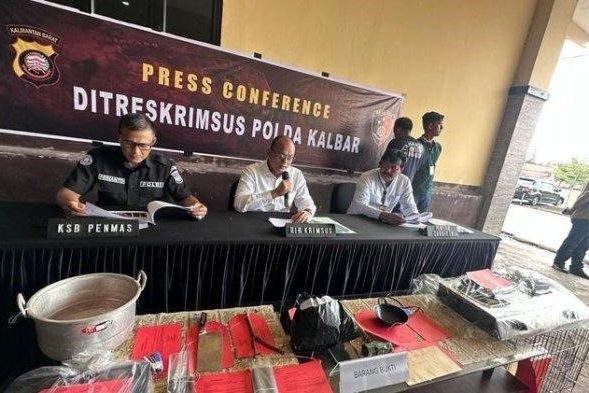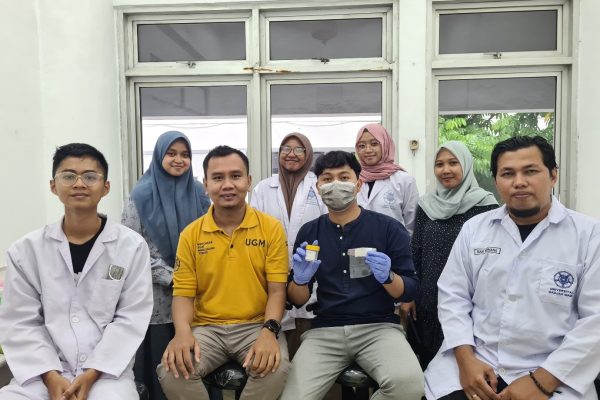[MBKM]- The MBKM team, under the guidance of Dr. Dwi Sendi Priyono, S.Si., M.Si., collaborated with the West Kalimantan Natural Resources Conservation Agency (BKSDA) and the Directorate of Special Criminal Investigation of West Kalimantan to conduct forensic DNA analysis on evidence in the case of monkey abuse by a public servant in Singkawang with the initials RS.
The examination process was conducted at the Animal Systematics Laboratory of the Faculty of Biology at UGM. The samples received on Friday, March 1, 2024. The team conducted forensic DNA examination on the hair and palm of the hands of long-tailed macaque (Macaca fascicularis) infants, involving a number of students who collectively handled the samples from isolation, amplification to visualization of the results. DNA examination is one of the foundations for identifying the evidence found.
RS, a public servant in Singkawang Regency, was arrested by the police on Wednesday, February 7, 2024, after one of the video contents of his abuse went viral and caught the attention of international animal lovers’ activists. Based on the issued video, long-tailed monkeys were tortured by being boiled, fried, mutilated, and hammered. For his actions, RS charged under Article 91 of the Livestock and Animal Health Law and or Article 302 of the Criminal Code concerning Cruelty to Animals, with a maximum penalty of nine months in prison. Assuming that the DNA forensic identification process succeeds, it will be contributed as evidence to enforce the Quarantine Law.
Forensic DNA analysis in animal abuse is a crucial step to support the achievement of Sustainable Development Goals (SDGs), especially in Life on Land (SDGs 15) and SDGs 16 on Peace, Justice, and Strong Institutions. With DNA forensic technology, we can contribute to testifying the violations against animals, ensure impartial law enforcement, and raise awareness of the need to protect animal life to maintain a balanced ecosystem. Thus, the collaboration between forensic science and animal protection can positively contribute to various aspects of SDGs, including justice, peace, and environmental sustainability.




